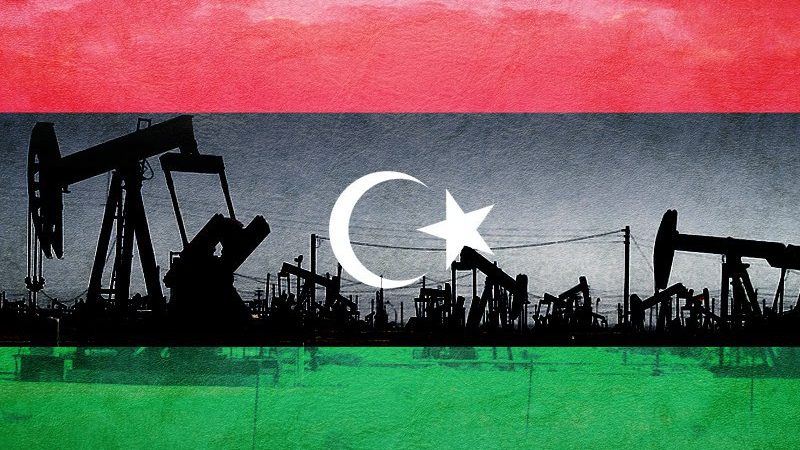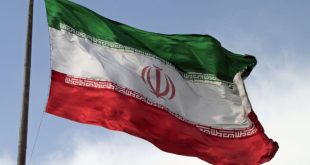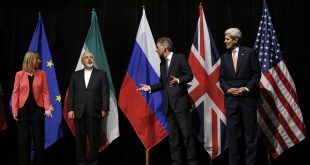The Libyan oil and gas sector are the main arteries of the country’s economy and one of its only sources of income. However, military forces recently closed most of the major Libyan ports. It seems that Khalifa Haftar and his forces are trying to win concessions from the constitutional government and the international community by stopping Libyan oil exports.
The issue is also related to the efforts of regional countries and world powers to push for the breakup of Libya, motivated by the abundance of oil resources in the country.
The approach seems to make it easier for the United States to access the vast oil fields in eastern Libya. The US sees Libya’s oil resources as potentially strategic due to their proximity to the Mediterranean Sea. If secured, it would be possible to send Libyan oil quickly to Western countries in the event of an energy crisis through the oil terminals on the Mediterranean coast.
LIBYA’S OIL FACILITIES
Libya’s well-known reserves of crude oil are 5 billion barrels in situ, the largest deposit in Africa. In addition to the huge reserves of crude oil, Libya also has large reserves of natural gas. The volume of these reserves is currently 3 trillion cubic feet but will surely increase further as the exploration continues.
Libyan oil is shipped out of five export terminals in its ports. Of these, five terminals are in the east of the country near Benghazi, while the sixth terminal is located near the small town of Zawia in the west of the country and near Tripoli. More than 50% of Libya’s oil resources are in the east of the country’s export terminals.
Currently, the Central Bank of Libya in Tripoli receives all oil revenues under the jurisdiction of the GNA. Haftar’s latest offensive lasted six weeks and saw his Libyan National Army (LNA) sweep through southern Libya capturing the country’s largest oil field, Sharara (315,000bl/d), and nearby El Feel (80,000bl/d). The LNA linked up with Tobruk’s key western force at Zintan which controls Wafa, the country’s largest gas field. With Tobruk already controlling the eastern Sirte Basin, home to two-thirds of national oil production, the GNA’s only remaining oil assets are the Bouri and al-Jurf offshore fields, producing 100,000bl/d.
The Libyan oil industry is managed by the state-owned Libyan Oil Company. Libya’s oil contracts with foreign companies are mostly based on its “production and profit sharing.” Half of Libya’s oil production is owned by the state-owned oil company, and the other half by foreign companies.
LIBYAN OIL EXPORTS TO THE EU
Although it has proven to be one of the biggest challenges in maintaining the OPEC cuts, Libyan oil officials said last year that they wanted to reach 1.5 million barrels a day by the end of 2018. However, it is unlikely that a deal among the parties will be reached (given the security situation). About 85% of Libya’s oil exports have already been targeted by the European countries a short distance away. Prior to the war in Libya, the country supplied 11% of the crude needed by European countries with 403 million barrels of crude annually exported to Europe, and was the continent’s third-largest supplier of crude oil after Norway and Russia.
Libya exported gas solely to Italy in 2019. Statistics indicate that Libya exported 15 million cu m/d on average and a total of 5.4 Bcm to Italy, which accounts for 8% of Italy’s total gas consumption. Since the month of April, General Khalifa Haftar and LNA have sought to take over Tripoli, which is under the control of the Libyan Government of National Accord, (GNA) which is supported by the UN.
US INTERESTS IN LIBYA
US’ integration with NATO after the fall of Gaddafi can also be viewed from this angle. Although the United States banned the creation of a flight zone because of the crisis of legitimacy and the wave of organized violence, the US’ role in managing the Libyan crisis is due to its having more incentive to restore oil relations. The United States has been pursuing strategic oil reserves strategy for nearly five decades now, with Libya seemingly being the right choice.
Libya’s National Petroleum Company is currently the sole supplier of the country’s oil to the world market, but most of the oilfields and infrastructure are controlled by the military. International oil companies and investors have stepped in, but are reluctant to invest in reopening the fields if internal conflicts continue. A decisive triumph by one side may lead to the revival of the Libyan oil star and the resumption of operations by the National Petroleum Corporation. A stable situation in Libya will facilitate the return of numerous European operators, notably Total, Eni and possibly Shell. Along with the Europeans, the US and Russian companies are also competing for oil assets.
Libya’s National Petroleum Company, which owns Africa’s second-largest oil reserve, said in a statement that Libyan oil production would decline by around 200,000 barrels per day as a result of blocking ports in central and eastern parts of Libya, meaning that there will be a loss of $55 million daily. The closure of the oil fields blocks the prime income source of prime minister Fayyad al-Saraj’s government. Oil sales go to the central bank and are used by the government in Tripoli to buy weapons and defend themselves. Libya’s oil production stood at 1.3 million barrels a day before the closures.
THE FUTURE
After gas export ports in the country were shut down, the global gas market was hit hard, resulting in an increase in gas prices. A continuation of this policy will cause the drop in petroleum production in Libya to continue and, in turn, accelerate in the increase prices in the global market.
As Libyan resources become more important, Europe’s role in the country is sure to increase. The Italian government has also pledged to invest $5 billion in Libya, and Libya has offered to cut the volume of immigration to the Mediterranean in return. Libya has Africa’s largest oil reserves. France is concerned with having a diplomatic ally in North Africa. Eni, 30% of which is owned by Italy, has recently taken control from British Petroleum in the Libyan capital. Eni hopes to resume oil and gas exploration, which means that widespread corruption and instability in Libyan oil sector must be resolved quickly.
Given the current situation and the issue of EU energy security, the EU’s efforts to resolve the conflict in Libya will continue to increase as energy imports from Libya continue to decline. Given the equilibrium in the oil market in the short term, the Libyan crisis will not have much of an impact if it continues. Major countries cannot meet market demand. One can expect oil prices to rise. Among the European countries, France and Italy will monitor Libya more closely because of a lack of political influence in the region.
Major energy companies and world powers are competing for control of energy sources and these powers and partners will continue to compete for Libya’s gas and oil fields. The main issue at hand is figuring out to what extent the people of Libya will be able to benefit from the economic and social benefits of energy exports if peace is achieved and major partners in the oil and gas industries return. Given the low cost of oil production in Libya, will the Libyan people see any benefit?
The Libyan crisis has no military solution, and the parties involved should negotiate and use diplomacy to resolve the crisis. The developments of the coming months and the extent of the parties involved in the crisis will shape Libya’s future political course. The Russian-American competition for greater influence in Libya and the region will continue. There will be an effort to sell weapons to the parties involved and the countries of the region will seek a greater share of the energy companies in the Libyan economy and the region as a whole.





